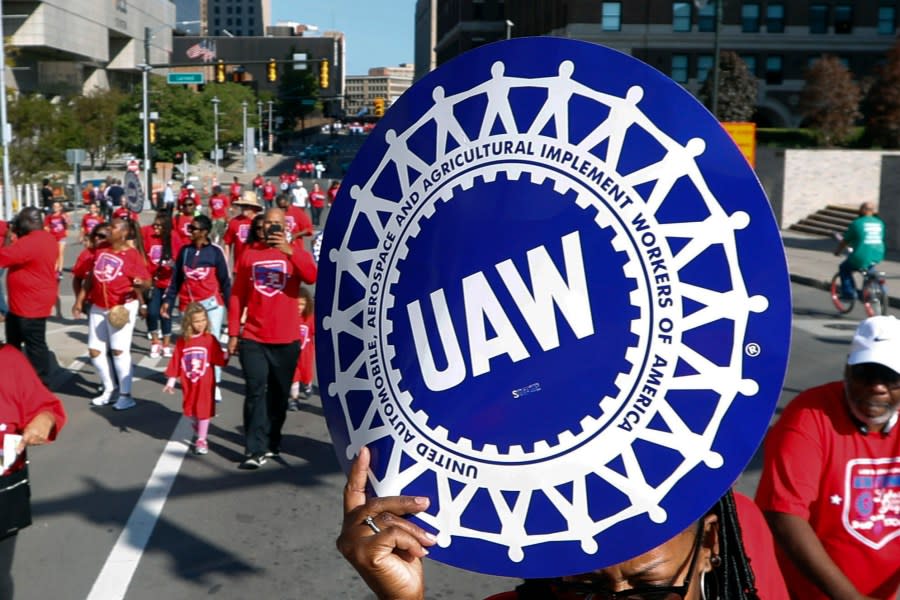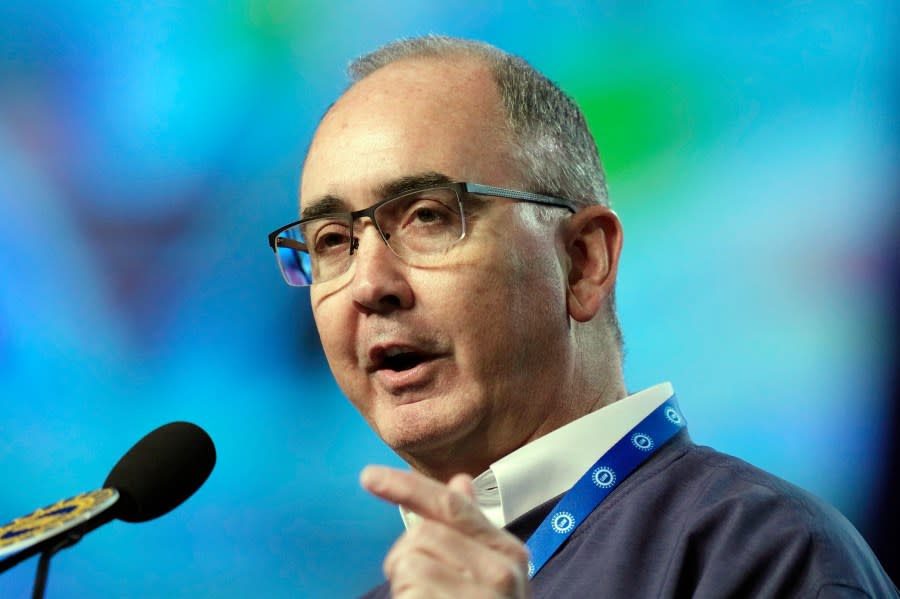Looming auto strike puts Biden’s labor loyalty to the test
A potential strike at the big three automakers in mid-September is about to show whether the “summer of strikes” can carry its momentum into this autumn.
United Auto Workers (UAW) is set to strike Sept. 14 if it doesn’t reach a deal with Ford, GM and Stellantis, and its endorsement for Biden could prove to be a seal of authenticity on the administration’s pro-labor self-styling.
“We’re focused on winning the best possible contract for our members in 2023, and then we can talk 2024,” the union said in a statement provided to The Hill.
“We want to see a federal government that is actively supporting our fight for economic justice in this green transition. Unfortunately, the Biden Administration is pouring billions into these companies’ pockets with no strings attached. A green transition with trickle-down economics won’t work,” the group said, referring to the economic doctrine associated in the U.S. with the Reagan administration.
The White House has been in touch with the negotiating parties, just as it had been with railroad workers who almost struck last year, as well as with Teamsters who just wrapped a contract negotiation with UPS.
5 big questions about the ‘summer of strikes’
“We’re not going to read out every, every conversation that this president has with parties in these negotiations, but the White House remains in close touch, as we have been in many other, in many of these other discussions with the UAW and the big three automakers,” White House spokesperson Karine Jean-Pierre said Monday.
UPS Teamsters had asked the White House not to get involved in its dispute, likening the negotiation to a street fight to be avoided by third-parties.

What does the UAW want?
The UAW is fighting for better pay, working conditions, and a return to defined-benefit pension programs, as opposed to retirement plans that are yoked to market performance. Market-pegged retirement plans became further embedded within the U.S. economy last year with the passage of Secure 2.0 retirement legislation, which included huge perks for wealthy retirees.
A defined-benefit pension program could significantly change the auto industry’s capital structure. How much depends on what exactly is negotiated, as such plans can require companies to keep cash on hand for their employees and their families, as opposed to reinvesting it and returning it to them via returns on stock.
Lawmakers keep a close eye on writers strike with no end in sight
They could also affect how the big three return investments to their own shareholders, as well as the astronomical sums they award to their own executives.
Ford announced a third-quarter dividend of 15 cents per share on the company’s common and Class B stock, the company announced in July.
In a statement provided to The Hill on Wednesday, Stellantis described the status of negotiations as “constructive and collaborative.”
“The discussions between the Company and the UAW’s bargaining team continue to be constructive and collaborative with a focus on reaching a new agreement that balances the concerns of our 43,000 employees with our vision for the future – one that better positions the business to meet the challenges of the U.S. marketplace and secures the future for all of our employees, their families and our company,” Stellantis’s statement says.

Memories of the Great Recession remain fresh
Fresh in the mind of the union, which has been energized by new leadership under the presidency of Shawn Fain, is the 2008 financial crisis, which significantly changed the labor and remuneration structure of the automotive industry.
“They got bailed out. We got sold out,” the union’s statement says. “The Great Recession turned the auto industry upside down. To save it, autoworkers took massive cuts to their wages and benefits. The companies introduced ‘tiers,’ worse pay for the same work.”
“Pensions were eliminated. Post-retirement healthcare vanished for new hires. Jobs were cut. The companies got billions in taxpayer dollars, while auto workers took deep cuts and made life-changing sacrifices to keep the industry alive,” it says.
Teamsters ratify new UPS contract, avoid massive strike
Auto industry profits surged during the recovery of the pandemic, as profits contributed to and prolonged inflation, with Ford raising its full-year profitability guidance to between $11 billion and $12 billion in the second quarter.
The company’s free cash flow estimate for the rest of the year was bumped up to between $6.5 billion and $7 billion.
Dealers prep inventory ahead of UAW strike
A UAW strike would interrupt production schedules and order deliveries to dealerships, which some dealers are already preparing for.
“Some dealers are starting to plan for the potential of a UAW strike and that is pushing them to the lanes to ensure they have inventory ‘just in case,’” Black Book, an automotive data agency, reported Tuesday.
Price implications in the automotive wholesale market are already starting to surface. For the first time this month, prices didn’t drop by more than 1 percent, according to Black Book data, indicating potential inventory concerns among car salespeople.

Automakers take aim at the ‘green economy’
The auto industry is of strategic importance to the Biden administration after the passage of the Inflation Reduction Act, which included heaps of tax credits for the construction of electric vehicles as part of a “green transition” to make the economy less environmentally destructive.
The legislation included $394 billion in tax credits geared toward energy and the climate, according to management consulting firm McKinsey.
“Some $43 billion in IRA tax credits aim to lower emissions by making [electric vehicles], energy-efficient appliances, rooftop solar panels, geothermal heating, and home batteries more affordable,” the company wrote in analysis of the legislation.
On Monday, the Treasury Department sent a love letter to unions in the form of a new report, arguing that unions are central to the U.S. middle class.
Treasury touts labor unions during ‘summer of strikes’
“The Biden-Harris Administration recognizes the benefits of unions to the middle class and the broader economy and is committed to fulfilling the policy objectives of the [National Labor Relations Act],” the report said.
While unions are seeing a surge in popularity in the U.S., organized labor has been in long-term decline, with union participation rates falling by half since they first started being measured in the early 1980s.
For the latest news, weather, sports, and streaming video, head to The Hill.

